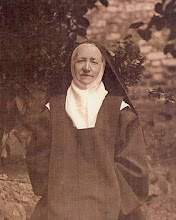Excerpts from the Apostolic Letter of Pope St Pius X on St Teresa
The Lord so filled her with the spirit of wisdom and intellect and with the treasures of His grace, that, as a star in the firmament, her splendour will shine in the house of God for all eternity.
(Bull of Canonisation)
Thus spoke Pope Gregory XV about St Teresa of Avila. And how truthfully! For this saintly woman has been of so much service in instructing the faithful in the way of salvation that she would seem to be little, if at all, beneath those great Fathers and Doctors of the Church whom we have named.
It is remarkable how she was gifted by nature for her heavenly office of instructress in the ways of virtue. Her marvellously keen intellect, her noble and generous soul, her sure judgement, her prudence in dealing with people and in business affairs, no less than her sweet disposition and pleasant manner, won for her the affections of everyone. But her natural endowments were altogether eclipsed by her supernatural gifts. Although among her contemporaries there were many persons distinguished for their holiness of life and knowledge of things divine – so that period may justly be called the golden age of Catholic Spain - it must be admitted that Teresa combined in herself the virtues and gifts of all that pious band whom she numbered among her intimate friends and advisers.
It would take long, and we do not intend, to describe the many excellences of this illustrious woman. But we judge it most opportune to set before you, beloved children, some considerations about her virtues – they will be to you a source of profitable meditations, and, through you, a source of instruction to Christians.
In the first place, seeing that those things which exceed the compass of the human reason and lie outside the narrow circle of nature, are nowadays regarded lightly by so many, or even contemptuously thrust aside as worthless, it will be useful to investigate the strong faith of Teresa. Since faith is the substance of things to be hoped for,’ that is, the root (as it were) of the divine and heavenly life in man, and the foundation on which the whole fabric of Christian perfection is built, it wins our admiration to see to what an extent Teresa lived by faith and was guided by it alone of her counsels, her words, her deeds. None showed more loyal obedience to the Church, the mistress of truth; none clung to its doctrines more unswervingly. Not only was she unshaken by the wiles of heretics and the deceits of the devil, but she stated in writing that if an angel or a voice from heaven should propose anything to her belief which was not conformable to the doctrine of the Church, she would never in any way believe it. And, further, we know that she was ready to face a thousand deaths, if need be, in defence of the faith. To her nothing was clearer or more evident that the truth of the Christian dogmas; indeed, the more inscrutable they were to human intelligence, the more whole-heartedly did she assent to them.
Therefore, when she approached the adorable sacrament, her mind seemed absorbed as if all her affections were rapt in contemplation of this great mystery. As the same Pope Gregory, our predecessor, says:
She beheld so clearly in the Blessed Eucharist, with the eyes of her mind, the Body of Our Lord Jesus Christ, that she asserted that she was not in the least envious of those who beheld our Lord with the eyes of the body (Bull of Canonisation).
14 Sept 2010
Subscribe to:
Comments (Atom)
